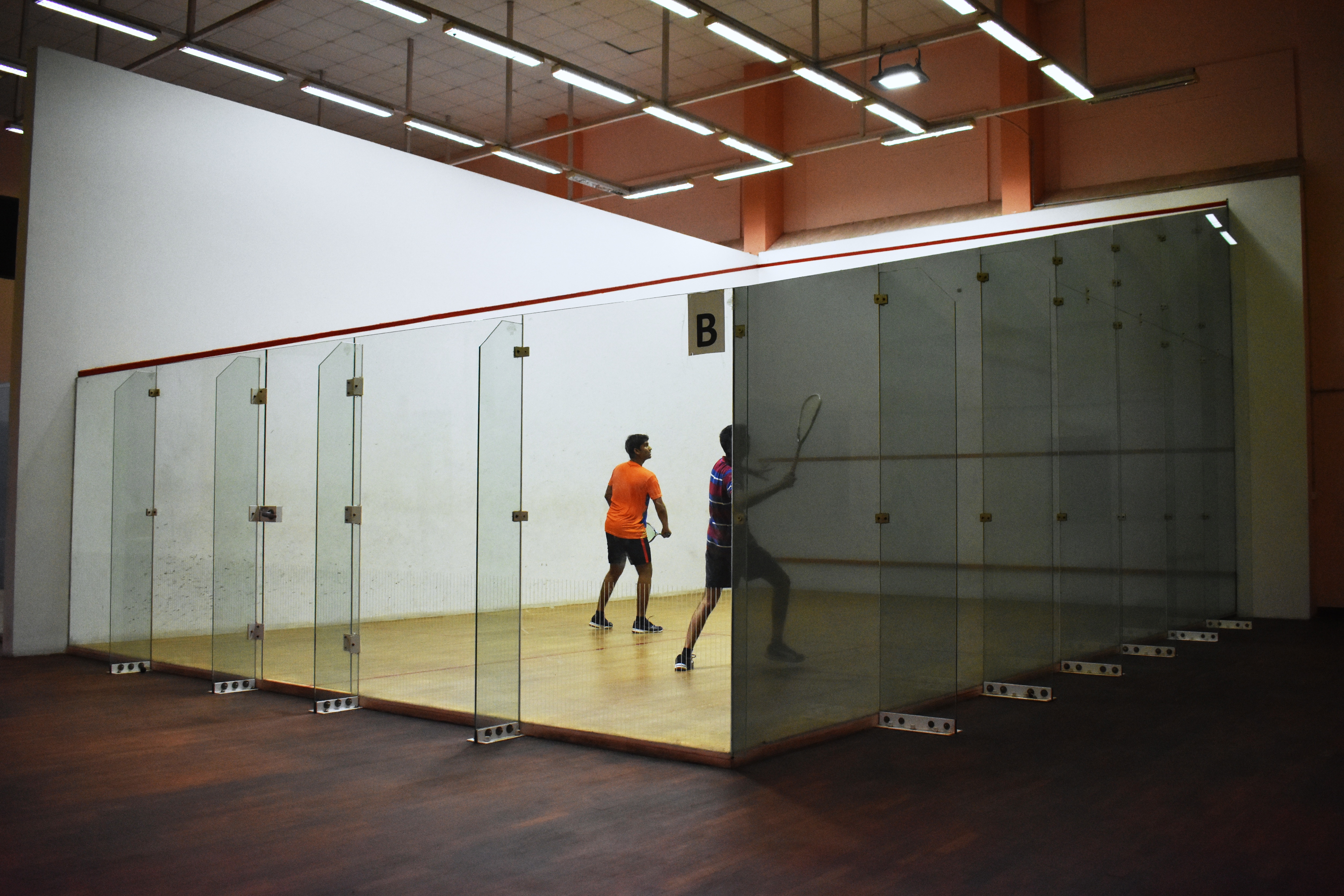On 17th March 2013, the students of IITM, who are usually not seen making loud political statements in public, came together in a protest against the Sri Lankan genocide issue. Around 40 students from IIT Madras went on a hunger strike which started at 8 am in front of the Himalaya Mess.
Rajmohan, a PhD student of Chemical Engineering and one of the organizers of the protest, said that the main motive of the protest was to spread awareness among the student community regarding the human rights violations taking place in Sri Lanka. “This protest is not politically motivated. The motivation behind it came from within ourselves”, said Rajmohan. Saying that students are agitating all over Tamil Nadu, he added that the Central government has not been co-operative in taking the right stance on the issue. He continued, “6-7 of us (students) came to a consensus to hold this protest today. We got permission to do this at the last minute.” On being asked about the participation in the protest, Amal Abdul Rahman, a first year M.Sc. Physics student said, “I have come here for the sake of human rights. I believe in justice and since justice is being denied, I have come to join the protest”. The protesters said that they did not just want to grab media attention towards the issue but also wanted to awaken a political consciousness among the students of IITM, inciting debate and deliberation. They also added that they wanted to take these protests, which had only been happening in Tamil Nadu, to the national level.
The protests also saw participation by Meena Kandasamy, a poet, writer, and social activist. The protestors aim to solicit signatures for a petition to bring justice to the war crime victims and send the petition to the head of the United Nations members. The hunger strike was also covered by several regional news channels.
As part of the protest, a panel discussion regarding the issue took place at the Central Lecture Theatre. The panellists were Mr. Bhagwan Singh (Chief of News Bureau at Deccan Chronicle), Mr. M. G. Devasahayam (Retired IAS officer), Dr. Ezhilan MD, Founder, Youthorg and Dr. V Suresh, National General Secretary of People’s Union for Civil Liberties (PUCL).
Dr. Ezhilan talked about the history of the Sri Lankan civil war, starting from the early days to the current situation. He ended his talk by saying, “let the Tamilians in Sri Lanka decide what they want for themselves.” Mr Devasahayam, said that the concept of sovereignty is faulty. He mentioned that sovereignty is good as long as the state is respecting humanity and human rights. He said that international intervention should happen and go on, but on their parts, India and Sri Lanka should go for a political solution.
Mr. Bhagwan Singh said that the Sri Lankan civil war is the biggest assignment he has worked on (since 1983). He shared some of his personal experiences regarding the issue. He also lauded IITians and other student protesters for coming forward. He said that in the coming Lok Sabha elections in 2014 the youth would be a force to be reckoned with. He urged the young people to ‘get rid of the mess’ and also to share their experience of the discussion with others so that more and more people become aware of the issue. Dr. V. Suresh started his speech asking the audience to ponder over few questions: why should we interfere into Sri Lanka and why should we be bothered? Answering these questions, he said that the issue is not of Sri Lankan Tamils alone; but of all of us, of democracy. (A large number of hands rose up when he asked how many people, among the audience, were non-Tamils). He said that people should come up and protest against the atrocities for human, strategic and security considerations. Showing the audience the Sri Lankan map, marked with important historical places (where significant incidents occurred), he led the audience through a ‘visual’ journey of the Sri Lankan civil war. In his words, “the test of humanity is not at the times of normality; the real test is at the times of terror”.
Overall, the panelists stressed on their demands of an early settlement for the Tamilians in Sri Lanka by holding a plebiscite, an international probe on Sri Lanka into the genocide, human rights violations and military atrocities and “an early and favorable response from the Central Government on Tamil Nadu state Assembly’s resolution to impose economic ban on Sri Lanka and ensure Indian fishermen’s security, breaking its indifferent silence on the issue”.
The third phase of the campaign was a silent march from Gajendra Circle to the Main Gate. Hundreds of people, including the panelists and the Dean, Students, L. S. Ganesh, gathered at around 5:30 pm at the Gajendra Circle for the march. Students held placards with quotes in different languages. Some declared: “Convict war criminals”, “Punish crimes against humanity”. The silent rally was preceded by the protestors breaking their fast, Meena Kandasamy giving a small and strong speech and L S Ganesh addressing the students, saying “Say what you do, do what you say. Say silently that we are very strong”. The march moved along Bonn Avenue to the Main Gate and returned to Gajendra Circle via Delhi Avenue.
As a follow-on to these protests, on 24th March, the protesters organised a candle-light vigil and a human chain at Gandhi Mandapam Road.




